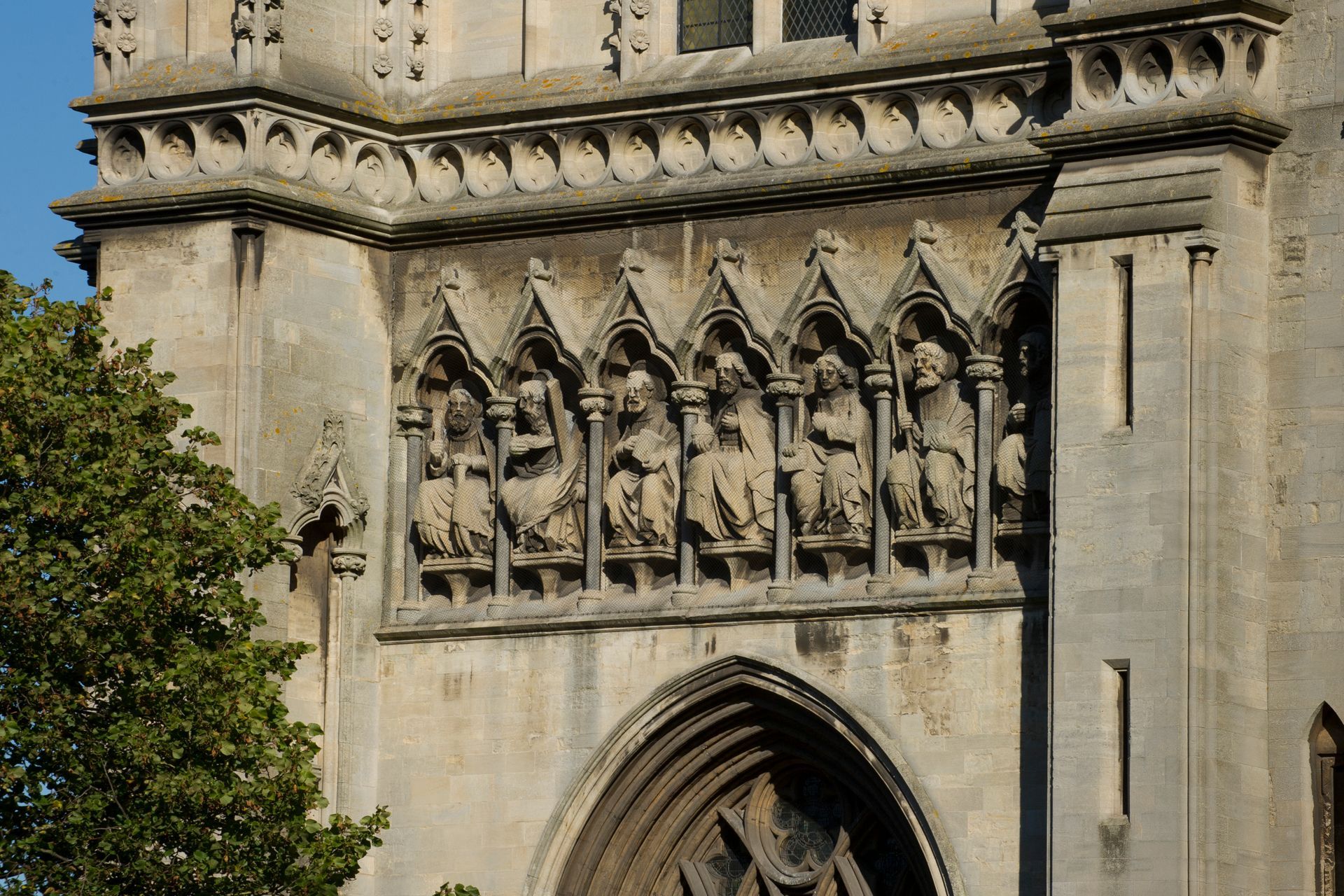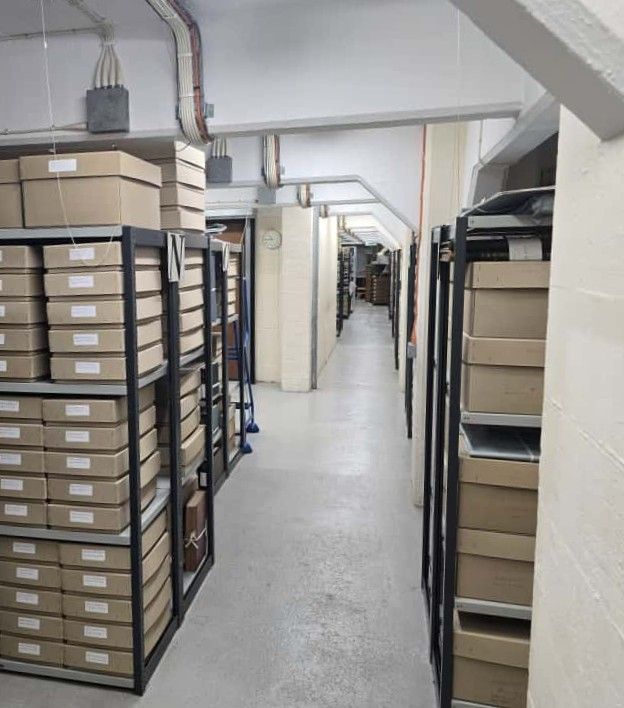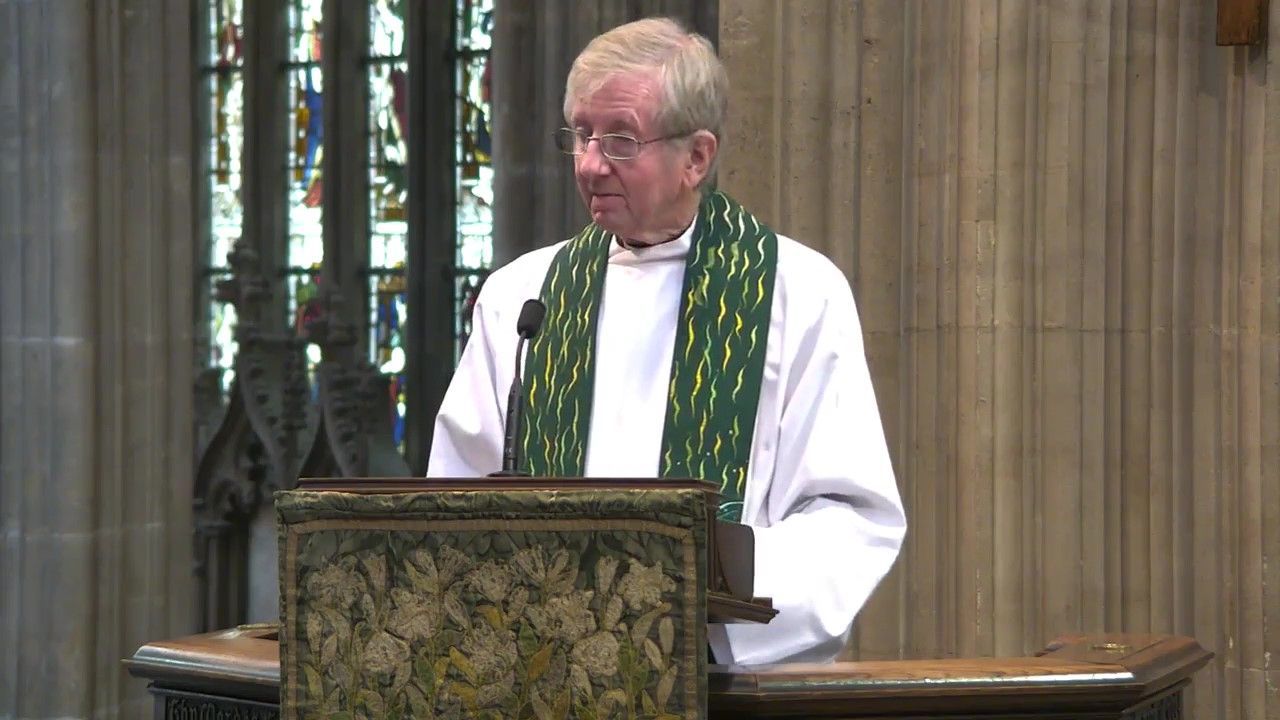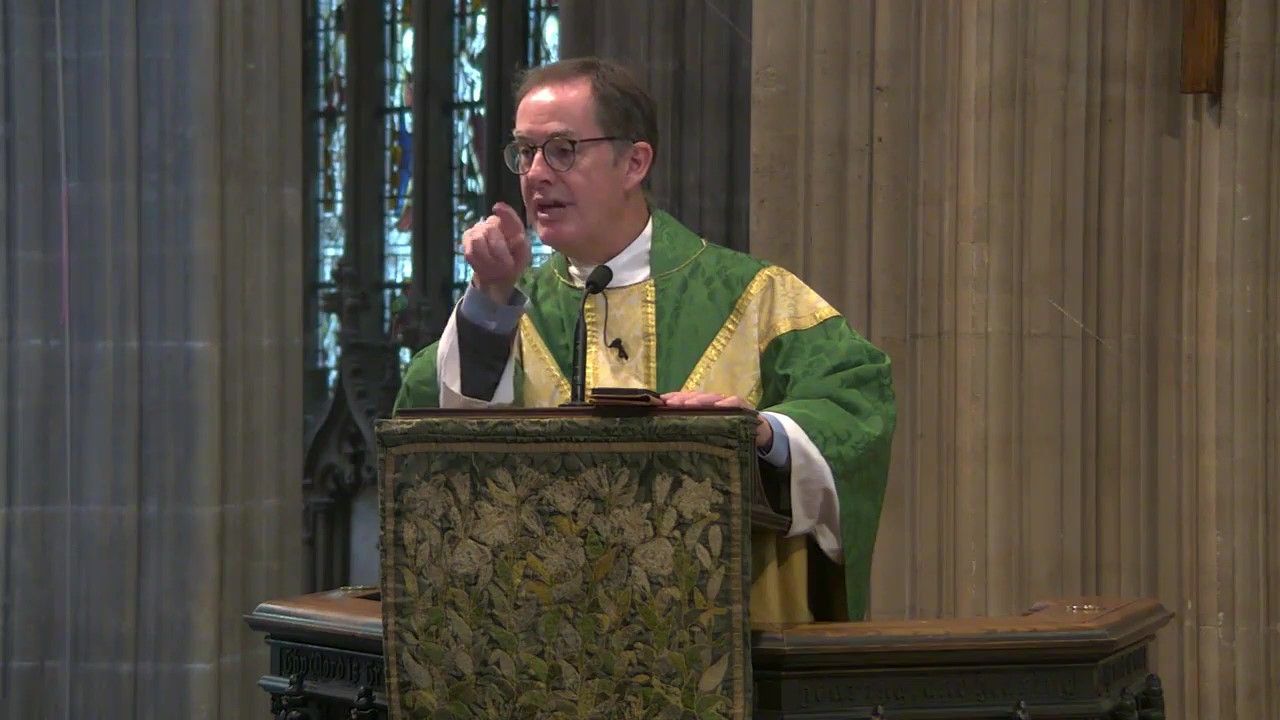You must understand this, my beloved
Whatever it is that St James wants us to understand - this quote is from the first chapter of his Epistle - he wants us to understand it in the context of being 'my beloved'. He's not rounding on those he finds disagreeable; he's not arguing with people from an opposing camp; he is speaking to those whom he loves: you must understand this, my beloved. This is a plea from the heart, that we should be quick to listen and slow to speak.
Many of us, including but not restricted to those who have been part of the groups working through the Pastoral Principles, will recognise this hope, this longing, this plea. It goes hand in hand with that old adage about troubled lives: "What this child needs is a good listening to!"
It is two thousand years since St James wrote be quick to listen, slow to speak, slow to anger; for your anger does not produce God’s righteousness and If any think they are religious, and do not bridle their tongues but deceive their hearts, their religion is worthless and yet those wise words are still as relevant to us today as they were then. It's not surprising that they travel through time with ease: we are, fundamentally, the same as the people James had in mind when he wrote his letter. We may be able to communicate with Mars and fall in love with someone on the other side of the world, but we still find it hard to bridle our tongues and to listen, listen and listen again.
And to those who want to say "You're a fine one to talk, Vicar!", I say: "You're right. I need, but then we all need, to pay attention to these things because, in the end, they are about power and the abuse of power; they are about prejudice and exclusion; they are about hypocrisy and ignorance. These are the themes of the pastoral principles and the themes at the heart of the community to which James was writing and the themes at the heart of the church - and our church - today. I'm not having a go at SMR, and it is important to acknowledge that we are doing so much better than we were a few years ago. However, we can't take our eyes off this, otherwise inertia will mean that we start going backwards.
One of the questions that arose in the Pastoral Principles group I was part of was how do we speak into this, how do we challenge behaviour that isn't OK, how do we name inappropriate use of power? It was clear to the group that if we don't do that, if we stay silent (which is very different from actively listening), we are colluding with that ignorance or hypocrisy or prejudice. I would encourage us all to do two things:
1. notice it
2. name it
Noticing it is the internal moment of realising that we are feeling uncomfortable with what's just been said, that it's racist or sexist or simply nasty, that we know it's not OK but we don't know what to do or what to say.
Naming it is the external moment of expressing that feeling of discomfort to someone else: it may take both courage and practice before you feel able to name it to the person who said it, but - you must understand this, my beloved - naming it to the clergy or the wardens will help you help us help the church be and become what we know we want it to be: a place of welcome for all and a community of inclusion of all.






